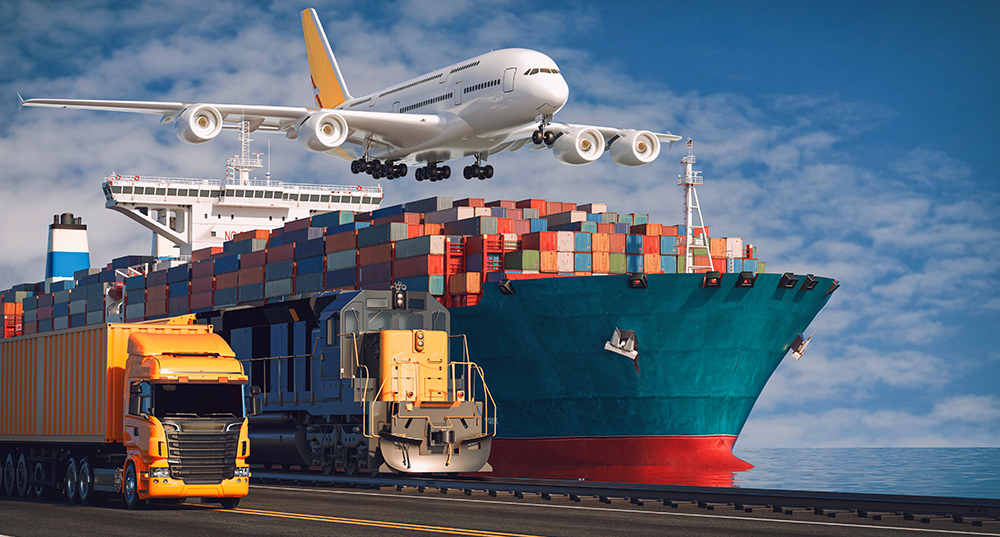Dubai is one of the leading global hubs for international trade. Its strategic location, advanced infrastructure, and government support have made it an ideal place for entrepreneurs to start an import export company in Dubai. Businesses from across the world use the city as a gateway to connect Asia, Africa, and Europe.
If you are planning to establish an import-export business, Dubai offers excellent opportunities. This guide explains the steps, benefits, challenges, and future prospects of starting and running a trading company in Dubai.
Why Dubai is a Global Trading Hub
Over the years, Dubai has grown into one of the most important trading centers in the world. The reasons behind this success include:

- Strategic location between major markets in Asia, Europe, and Africa
- Modern infrastructure, including Jebel Ali Port and Dubai International Airport
- Free zones offering tax benefits and full foreign ownership
- Business-friendly policies with minimal restrictions
- Global connectivity through trade agreements and logistics
Because of these advantages, Dubai attracts thousands of entrepreneurs who establish import export companies in industries like electronics, gold, textiles, automobiles, and food.
How to Start an Import Export Company in Dubai
Starting an import-export business in Dubai requires careful planning and compliance with local regulations. The main steps include:


Step 1: Choose Your Business Activity
First, decide which products you want to trade. Common categories include:
- Food and beverages
- Textiles and garments
- Electronics and mobile devices
- Building materials
- Gold, diamonds, and jewelry
- Automobiles and spare parts
Step 2: Select a Business Location
You can set up either a mainland company or a free zone company.
- Mainland companies can trade directly in the UAE and internationally.
- Free zone companies allow 100% foreign ownership, tax exemptions, and easy setup, but may require a distributor to sell in the UAE market.
Step 3: Register the Business and Obtain a Trade License
For mainland companies, the Department of Economic Development (DED) issues trade licenses. In free zones, the respective authority handles licensing.
Step 4: Arrange Office Space or Warehouse
Depending on your operations, you may need office facilities, storage, or a warehouse. Free zones often provide flexible packages.
Step 5: Open a Corporate Bank Account
A UAE-based corporate account is essential for smooth international transactions.
Step 6: Register with Dubai Customs
Customs registration is mandatory to legally import and export goods.
Once these steps are complete, your import export company in Dubai will be ready to start operations.
Business Opportunities in Dubai’s Import Export Sector

Dubai offers profitable opportunities across many industries. Some of the most promising include:
Gold and Precious Metals
Dubai is globally known as the City of Gold. The emirate has one of the largest markets for gold and precious stones, making it highly attractive for traders.
Food and Agriculture Products
Dubai imports most of its food products due to limited agriculture. This creates demand for traders dealing in rice, spices, fruits, vegetables, and meat.
Electronics and Mobile Devices
Electronics are among the top re-exported items in Dubai. Importing from Asia and exporting to Africa and Europe has become a profitable model.
Automobiles and Spare Parts
The Middle East and African markets have high demand for vehicles and auto parts, which has made this sector a favorite among trading companies.
Construction Materials
With continuous infrastructure development, materials like steel, cement, and equipment are in constant demand.
Benefits of Setting Up in Dubai
Starting an import export company in Dubai comes with several advantages:
- Tax-free environment in free zones
- Access to international markets across three continents
- World-class shipping and logistics facilities
- Stable economic and political environment
- Availability of a skilled international workforce
Challenges to Consider
Despite its advantages, Dubai’s trade industry also presents some challenges:
- High competition among trading companies
- Regulatory requirements for certain product categories
- Initial setup costs, especially for warehouses and licenses
- Currency fluctuations affecting global trade profits
By preparing well and working with professional consultants, these challenges can be effectively managed.
Popular Free Zones for Import Export Companies
Dubai has several free zones tailored for international trade. Some of the most popular include:
- Jebel Ali Free Zone (JAFZA) – Ideal for large-scale logistics and manufacturing
- Dubai Airport Free Zone (DAFZA) – Perfect for electronics and high-value goods
- Dubai Multi Commodities Centre (DMCC) – Focused on gold, diamonds, and other commodities
- Dubai South Free Zone – Close to Al Maktoum Airport, excellent for logistics
Each of these zones offers tax benefits, foreign ownership, and advanced facilities to support global business operations.
Tips for Success in Import Export Business
To run a successful trading company in Dubai, keep these tips in mind:
- Research market demand before choosing products
- Build strong supplier and buyer networks
- Stay updated on regulations and compliance requirements
- Use digital tools to manage inventory and transactions
- Offer competitive pricing to stand out in a competitive market
Future of Import Export Companies in Dubai
Dubai’s government continues to strengthen its position as a global trade hub through initiatives like the Dubai Silk Road Strategy. With new agreements and advancements in logistics, the emirate is expected to expand further in the coming years.
Emerging trends such as blockchain for customs clearance, e-commerce logistics, and digital trade platforms will also shape the future of import-export businesses. Entrepreneurs who adapt to these changes will enjoy long-term growth and success.
Conclusion
Dubai is more than a luxury destination; it is one of the most important centers of global trade. Setting up an import export company in Dubai gives businesses direct access to Asia, Africa, and Europe. With a supportive government, advanced infrastructure, and tax-friendly environment, the city offers unmatched opportunities.
While challenges like competition and regulatory requirements exist, proper planning and smart business strategies can ensure success. For entrepreneurs and investors, Dubai remains one of the most promising destinations for international trade.
Do follow UAE Stories on Instagram
Read Next – Dubai Residential Property Fundamentals Steady Despite Seasonal Dip














